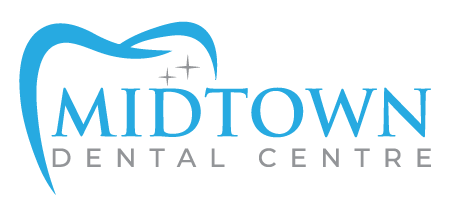Spring is the perfect time to schedule a dental checkup for your child. School breaks and longer daylight hours make it easier to plan appointments without disrupting daily routines. If you’ve noticed changes in your child’s teeth, bite, or jaw alignment, this visit to the family dentist could help determine whether they need braces.
Braces are a standard treatment for children and teenagers, but deciding when to start the process can be challenging. This guide will help you understand the signs that indicate a need for orthodontic treatment and what to expect when discussing options with your family dentist this spring.
Signs Your Child Might Need Braces
Every child develops differently, and some dental concerns resolve independently as they grow. However, sure signs indicate a need for orthodontic evaluation:
1. Crooked or Crowded Teeth
If your child’s teeth are overlapping or misaligned, braces can help straighten them, improving aesthetics and oral health.
2. Bite Issues (Overbite, Underbite, Crossbite, or Open Bite)
- Overbite: An excessive overlap between the upper and lower front teeth.
- The lower front teeth protrude past the upper teeth in an underbite.
- Crossbite: The upper and lower teeth don’t align properly when biting.
- Open bite: When the mouth is closed, there is still space between the top and lower teeth.
Bite problems can cause difficulty chewing, speech issues, and even jaw discomfort.
3. Early or Late Loss of Baby Teeth
Baby teeth serve as placeholders for permanent teeth. Losing them too early or too late can cause alignment problems, leading to the need for orthodontic treatment.
4. Thumb Sucking or Tongue Thrusting
Habits like prolonged thumb sucking or tongue thrusting can affect tooth alignment and jaw development, sometimes necessitating braces.
5. Difficulty Chewing or Biting
If your child frequently bites their cheek, struggles to chew food, or has discomfort when eating, it may be due to misaligned teeth or bite issues.
When Is the Right Age for Braces?
There is no one-size-fits-all answer to when a child should get braces, but most orthodontists recommend an initial evaluation around age 7. At this stage, the dentist can assess tooth and jaw development and determine if early intervention is necessary.
Braces are typically recommended for many children between ages 9 and 14, when most of their permanent teeth have come in. However, some children may benefit from early orthodontic treatment (Phase 1) to guide jaw growth and prevent more severe issues later.
Types of Braces to Consider
If your family dentist recommends braces, there are several options available:
1. Traditional Metal Braces
These are the most common and effective for treating various alignment issues. Today’s metal braces are smaller and more comfortable than in the past.
2. Ceramic Braces
Ceramic braces work like metal braces but are less noticeable due to their tooth-colored brackets. They are a good option for older children or teenagers who are concerned about aesthetics.
3. Clear Aligners (e.g., Invisalign)
Clear aligners are removable and nearly invisible, making them popular for teens. However, they require discipline since they must be worn for at least 22 hours daily.
4. Lingual Braces
Lingual braces are placed behind the teeth and hidden from view. While effective, they may not be suitable for all cases and can be more challenging to clean.
What to Expect at the Family Dentist This Spring
1. Comprehensive Dental Exam
The family dentist will check your child’s teeth, gums, and jaw alignment to assess if braces are necessary. X-rays or digital scans may be taken to understand your child’s dental structure fully.
2. Discussion of Treatment Options
If orthodontic treatment is needed, the dentist will discuss the best braces for your child’s needs and lifestyle.
3. Treatment Timeline and Cost Estimates
Braces can take anywhere from 12 to 36 months, depending on the case’s complexity. The dentist will also provide cost estimates and discuss insurance coverage or payment plans.
4. Oral Hygiene Guidance
Braces require extra care to prevent cavities and gum disease. The dentist will provide tips on maintaining oral hygiene, such as using interdental brushes and fluoride rinses.
Get Expert Dental Care at Midtown Dental Centre
If you’re considering braces for your child, Midtown Dental Centre provides orthodontic evaluations and personalized care. Our team is dedicated to ensuring better dental health for your child. Visit Midtown Dental Centre today to schedule a consultation.






Leave A Comment